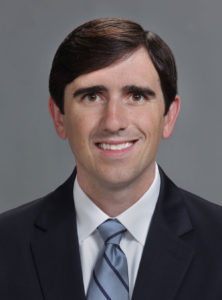Rotator Cuff Surgeon

Are you an athlete who participates in sports that involve throwing overhead? If so, you may be at risk of developing a rotator cuff injury. The rotator cuff can become damaged from repetitive overuse, a sports injury, a fall or degeneration of one of the tendons. Rotator cuff surgeon, Dr. Robert Boykin provides diagnosis and both nonsurgical and arthroscopic surgical treatment options for patients in Asheville. Contact Dr. Boykin’s team today!
What is the Rotator Cuff?
The rotator cuff is a series of four muscles that surround the shoulder joint. These muscles are responsible for centering the ball in the socket of the shoulder in addition to providing the shoulder with its powerful strength and range of motion which allows overhead activities.
The muscles originate from the scapula (shoulder blade) and insert on the humerus bone of the upper arm. As each of the muscles get closer to their insertion on the humerus, they are called tendons. These tendons may be damaged from a traumatic event, micro-damage from overuse and impingement (pinching of the tendon against the acromion process of the scapula), or from chronic degenerative changes of the tendon. Injury to the rotator cuff may involve one or more tendons. The spectrum of disease ranges from tendonitis (inflammation of the tendon) to partial tears to full thickness tears (complete detachment). Shoulder surgeon Dr. Robert Boykin specializes in the treatment of rotator cuff disease for patients in Asheville, Arden, Fletcher and surrounding North Carolina communities.
Treatment Options for Rotator Cuff Injuries
In cases of tendonitis or small partial tears, non-operative measures are typically the first line of treatment. These include anti-inflammatory medications, physical therapy, and in certain cases, an injection to reduce the inflammation. Dr. Boykin may also recommend physical therapy for patients to help gain strength and motion to the arm. In patients with full thickness tears, large partial thickness tears, or smaller tears/tendonitis that have failed non-operative measures, surgery may be indicated.
Arthroscopic Rotator Cuff Repair Overview
In the majority of cases, surgery to treat rotator cuff tears can be performed arthroscpically using small incisions, a camera, and specialized surgical instruments to perform the procedure. This consists of identifying the torn tendon and reattaching it to its insertion site on the humerus (an area called the rotator cuff footprint). This is typically completed using a combination of strong sutures placed through the tendon and anchors that are secured in the bone to restore the normal anatomy of the tendon. The exact configuration of the tear will dictate the type of repair that is needed. In certain cases a double row repair will be performed to provide compression of the tendon for healing. This consists of two rows of anchors in the bone with sutures in between to secure the rotator cuff tendons back to their original attachment site. In many cases a subacromial decompression and acromioplasty will also be performed, which are procedures to remove bone spurs and inflamed tissue to create space above the rotator cuff repair and relieve impingement.
Recovery Following Arthroscopic Rotator Cuff Repair
After surgery patients are placed into a sling and an individualized physical therapy program is started. The specific progression of therapy will depend on the configuration of the tear, type of repair, and the number of tendons involved. Rehabilitation will typically consist of passive range of motion followed by active motion, strengthening, and eventually return to activities. The sling is worn for 6-8 weeks in total. The recovery after rotator cuff surgery is a long and steady process, and following a proper rehabilitation program is of the utmost importance to achieve the best outcome.
For additional resources on rotator cuff injuries, or to learn more about arthroscopic rotator cuff repair surgery, please contact the Asheville, Arden, Fletcher and surrounding North Carolina communities. orthopedic practice of Dr. Robert Boykin.
